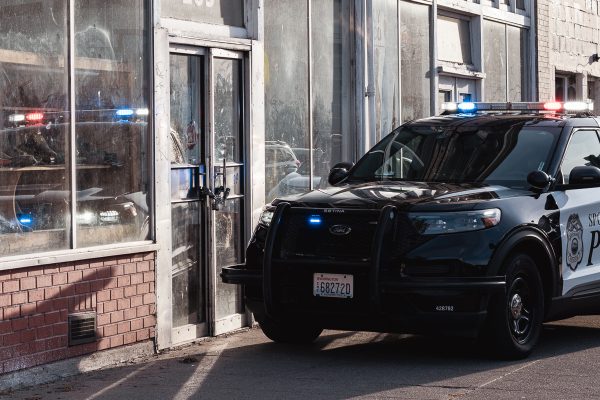Washington state receives $3 million for untested rape kits
Hundreds of untested sexual assault kits wait to be tested at Seattle’s Police Department. Washington currently had 6,000 untested kits in October of 2017 | Photo courtesy of the Seattle Times
October 30, 2017
Washington state received a $3 million grant from the federal government to combat the 6,000 backlogged sexual assault kits. The money will go not only to testing these kits, but also for creating a team to investigate those sexual assault cases.
The grant comes from the U.S. Department of Justice’s Sexual Assault Kit Initiative (SAKI). SAKI was started in 2015. As of October 2016, 32 districts were funded, 26,757 kits inventoried, and 8,740 kits sent for testing.
SAKI gave out a total of $34 million this year, to split between the 20 jurisdictions. Washington and Atlanta were given the most money in the country, each getting $3 million.
Washington has applied for the grant twice before. However, Washington Association of Sheriffs and Police Chiefs were not recognized as a government entity by federal officials.
This year’s successful application is accredited to the state’s attorney general’s office involvement.
In 2015, a new law was put in place that required all sexual assault kits to be tested. Before then, it was up to the detective’s discretion.
There’s an estimated 6,000 backlogged sexual assault kits across the state according to official reports. All 6,000 of these kits were untested prior to the 2015 decision and are now expected to go through testing.
Sexual assault kits are generally labeled backlogged if they sit untested for more than 30 days. These kits include forensic evidence collected from victims that have been sitting in police evidence lockers for months, years, and, in some cases, decades.
Spokane County Sheriff’s and Police Department currently have 371 backlogged kits.
“We realized there’s more kits than we have a capability of testing at our current staffing level, so this grant is going to be a huge help,” said Kyle Moore, the Communication Director for the Washington State Patrol, in a phone interview.
Half of the grant will go to testing 2,100 kits; each kit costs about $700 to be tested. Part of the high expense is attributed to the cost to staff enough forensic scientists to test those kits.
The grant will cover paying third-party labs to test kits and creating more manpower to get more kits tested simultaneously.
For the kits not tested at the Washington State Patrol’s crime labs, their test results will have to be verified at one of those five labs across the state. From there, the suspect’s DNA will be entered into the FBI’s Combined DNA Index System.
“We are very thankful for this grant because it’s going help relieve some of these kits that have not been tested,” said Moore. “And the big issue here is that these are women, for the most part, who have survived a vicious attack and they haven’t had the opportunity to have justice served. And this is gonna allow these women to see justice.”
The other half of the money will go to fund an investigative team within the attorney general’s office over a period of three years, ending in Sept. 2020.
There will be two full time investigators funded, who will spend the first half of the year traveling the state to help local police agencies prioritize kits for testing and create a detailed log of those kits.






![Simmons said the biggest reasons for her success this year were “God, hard work, and trusting [her] coach and what she has planned.”](https://theeasterner.org/wp-content/uploads/2024/05/image1-1-1200x800.jpg)


![Simmons said the biggest reasons for her success this year were “God, hard work, and trusting [her] coach and what she has planned.”](https://theeasterner.org/wp-content/uploads/2024/05/image1-1-600x400.jpg)






